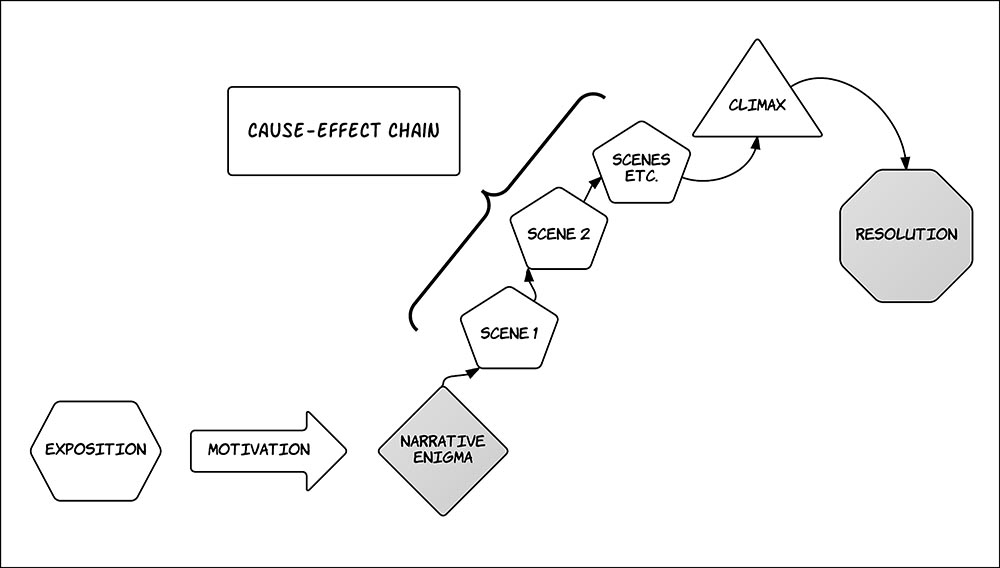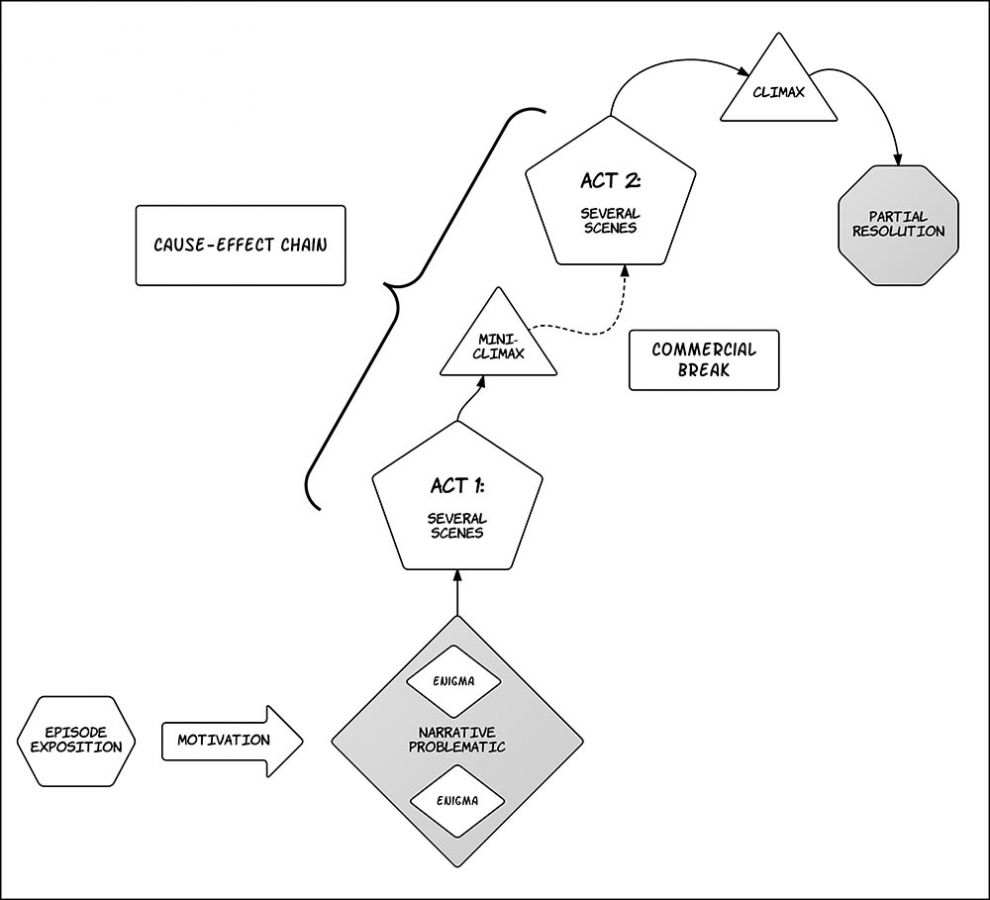Difference between revisions of "Narrative Structure (Discussion)"
From Screenpedia
Jump to navigationJump to search (added BUI301 cats) |
|||
| Line 63: | Line 63: | ||
*''The Big Bang Theory'', "The Vartabedian Conundrum" [https://tvcrit.org/EO/DV/Big_Bang_Theory_2x10_-_The_Vartabedian_Conundrum..pdf screenplay] | *''The Big Bang Theory'', "The Vartabedian Conundrum" [https://tvcrit.org/EO/DV/Big_Bang_Theory_2x10_-_The_Vartabedian_Conundrum..pdf screenplay] | ||
| + | [[Category:BUI301]] | ||
| + | [[Category:BUI301 Discussion]] | ||
[[Category:JCM311]] | [[Category:JCM311]] | ||
[[Category:JCM311 Discussion]] | [[Category:JCM311 Discussion]] | ||
Revision as of 15:02, 20 August 2020
Classical Hollywood cinema
Choose a classical film that everyone in your group has seen. Explain how it fits the classical implementation of:
- Single protagonist
- Exposition
- Motivation
- Narrative enigma
- Cause-effect chain
- Story time versus screen time--in terms of duration and order
- Climax
- Resolution
Group examples
- G1:
- G2:
- G3:
- G4:
The television series
Break down the "The Vartabedian Conundrum" episode from The Big Bang Theory (December 8, 2008).
How many scenes does it have?
Explain how it does or does not exemplify conventional television-series narrative structure:
- G2: Multiple protagonists
- G3: Exposition and motivation
- G4: Narrative problematic
- G4: Cause-effect chain
- G1: Climax
- G1: Resolution
The television serial
- Select a serial that most of your group watches.
- Contrast the serial with the series. Aside from the obvious lack of resolution in the serial, name (and be prepared to explain) three differences between the two in terms of narrative elements.
- Contrast the serial with the series. Aside from the obvious lack of resolution in the serial, name (and be prepared to explain) three differences between the two in terms of narrative elements.
Bibliography
- Jeremy G. Butler, Television: Visual Storytelling and Screen Culture (New York: Routledge, 2018).
- TV Tropes: listing of numerous narrative conventions.
External links
- The Big Bang Theory, "The Vartabedian Conundrum" shot lists
- The Big Bang Theory, "The Vartabedian Conundrum" screenplay

